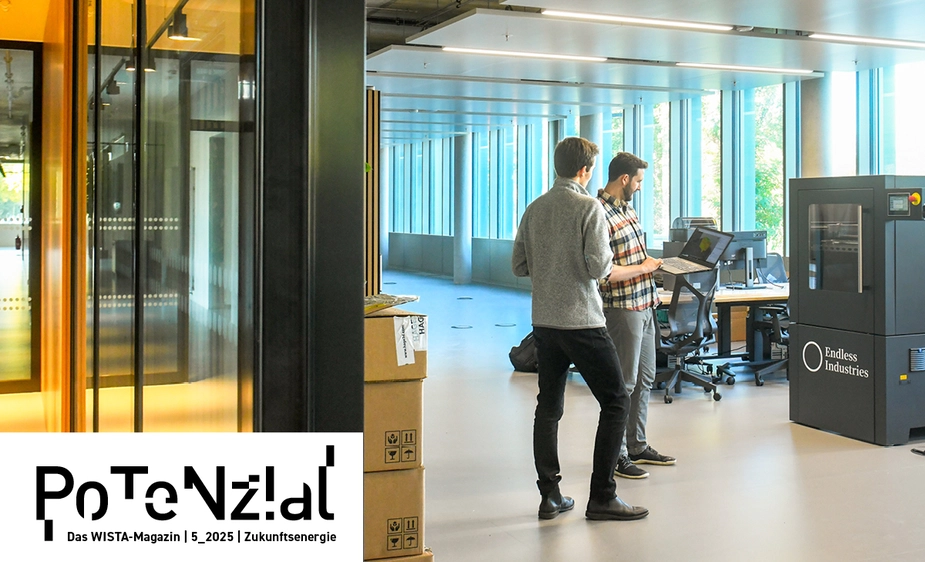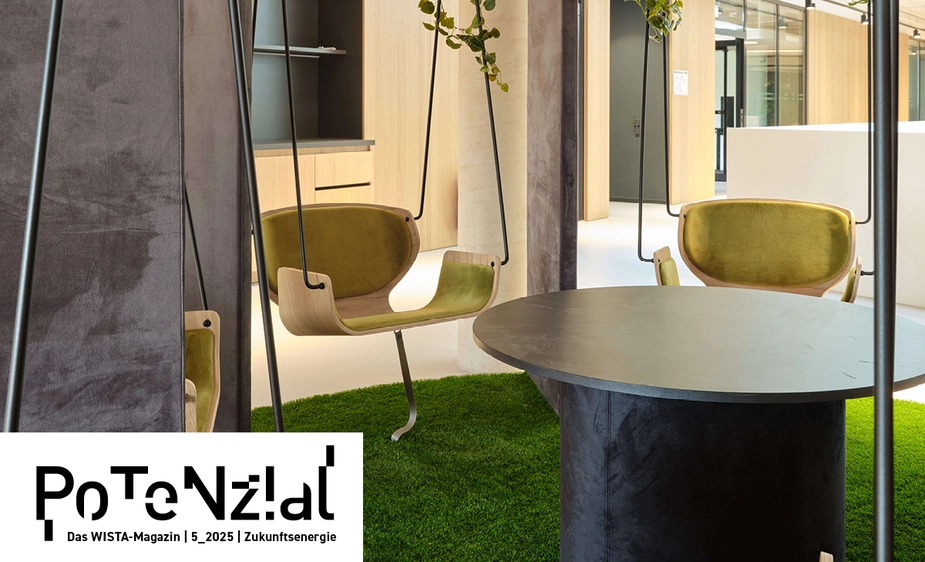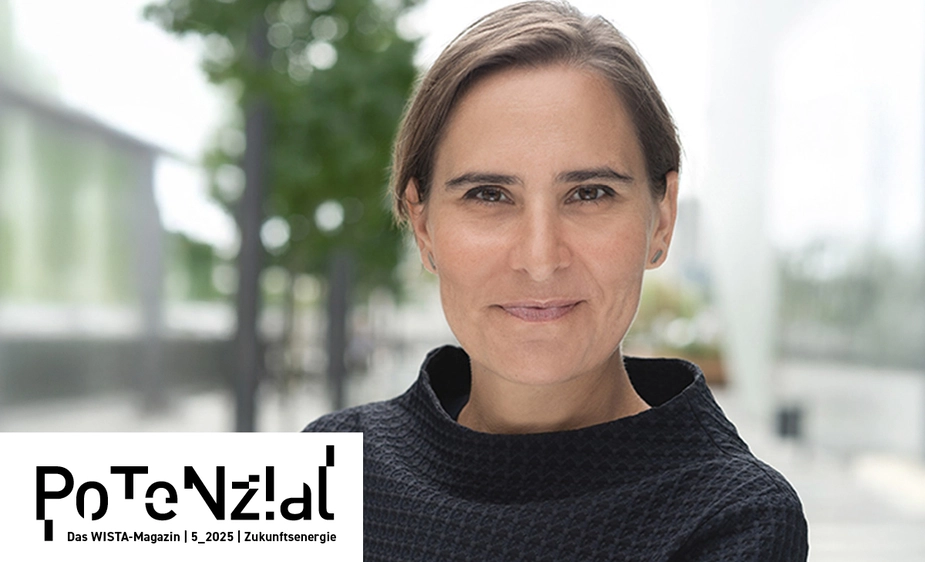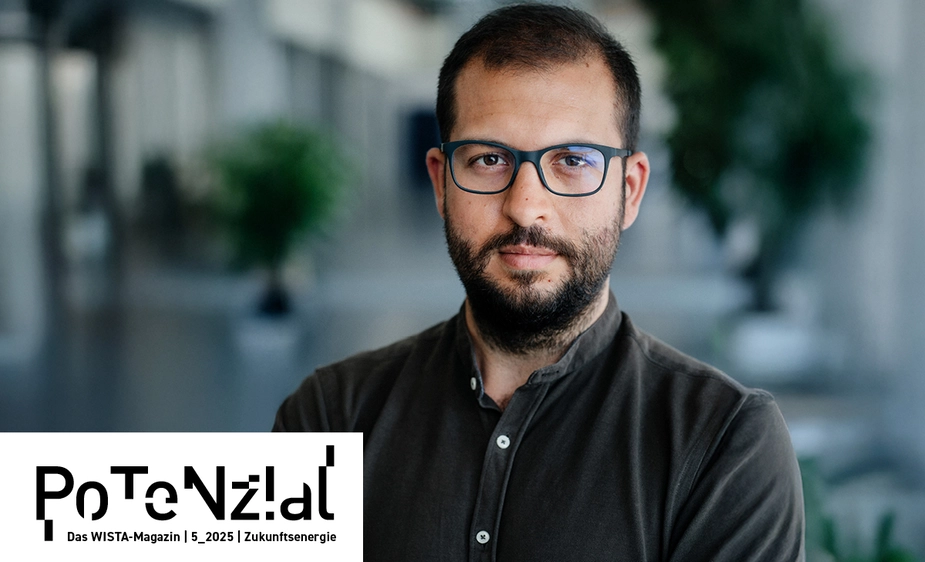Spaces and Technology for the Circular Economy
How can we successfully transition to a circular economy? A pilot project in Berlin is searching for the answers
The smell of coffee wafts through the air, while a 3D printer is being calibrated just a few steps away. The office kitchen that forms the backdrop for this scene is more than just a place for taking a break. The working environment here has been deliberately set up and designed in such a way that new ideas can arise from chance conversations. What sounds simple has a strategic function; spaces like this are part of a larger experiment. The Adlershof Technology Park is currently testing how infrastructure and innovation must interact so that the circular economy does not remain merely a political goal but becomes a reality.
The “Tech and Spaces for Circular Berlin” project is funded by the German Senate Department for Economics. The participants include WISTA as the location developer, urban development experts from Creative Climate Cities, and Circular Berlin which focuses on technological levers. They are working together to explore the question of how structural change towards a circular economy can begin in concrete terms – starting with Adlershof as a living lab.
The focus is not only on technology, but also on the environment in which it thrives. “A circular economy needs space,” says Nadine Kuhla von Bergmann from Creative Climate Cities. This refers not only to workshops and laboratories, but also to places for discussion, training, and recreation – spaces where innovation is born through encounters.
The project first began by analysing the structural and organisational conditions on site. This resulted in a catalogue of criteria designed to help innovation locations better identify and exploit their own potential for circular economy. It was also supplemented by workshops with local stakeholders, for example on the issue of shared-use spaces for logistics, material storage, and prototyping.
One example of practical implementation is WISTA’s ST3AM Adlershof working environments: a versatile place to work and meet, with a makerspace, academy rooms, and quiet zones. Even a classic office kitchen has been furnished as a communicative meeting place, with the hope that the next eureka moment might occur right here.
Alongside the spatial aspects, the project focuses specifically on technological drivers of the circular economy. The emphasis is on key areas such as optics, photonics, and materials science – all of which have a strong presence at Adlershof. The aim is to find out how to close material cycles or enable new forms of value creation.
To this end, the Circular Berlin team conducted interviews with stakeholders from academia, business, and the startup scene in Adlershof and beyond. The results showed that technologies such as sensor technology, digital material passports, and smart sorting systems have existed for a long time, but what is often lacking is the knowledge of how to make them effective along entire supply chains. In other words, not only reducing CO₂ emissions, but also creating synergies within the system.
“Many businesses choose to focus on their own sustainability,” says Ronja Scholz from Circular Berlin. “But the circular economy is about closing gaps – between industries, stakeholders, and material flows.” In addition to technology, this also requires new business models and training formats. A practical guidebook with recommendations for administration, business, and planning is due to be published in autumn.
WISTA also wants to draw concrete inspiration from the project. “We have already discussed many of these issues internally,” says Rawad Chammas, Knowledge & Technology Transfer Manager at WISTA. “But we often lack in-depth expertise in the individual areas. This makes the insights we can now develop and implement together even more valuable.”
That which is being tested in Adlershof today will also help other places to move the circular economy from concept to real-world implementation in the future, with the right technologies, the right spaces, and a shared understanding of change.
Kai Dürfeld for Potenzial
- Circular Economy - Adlershof Technology Park
- Creative Climate Cities – CCC
- Circular Berlin
- WISTA Management GmbH



